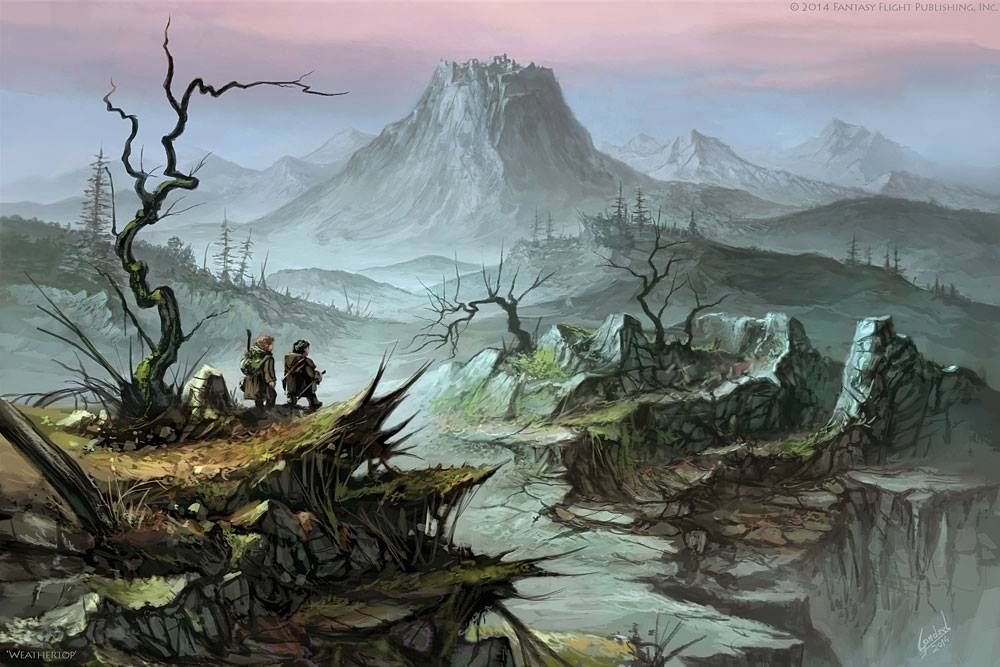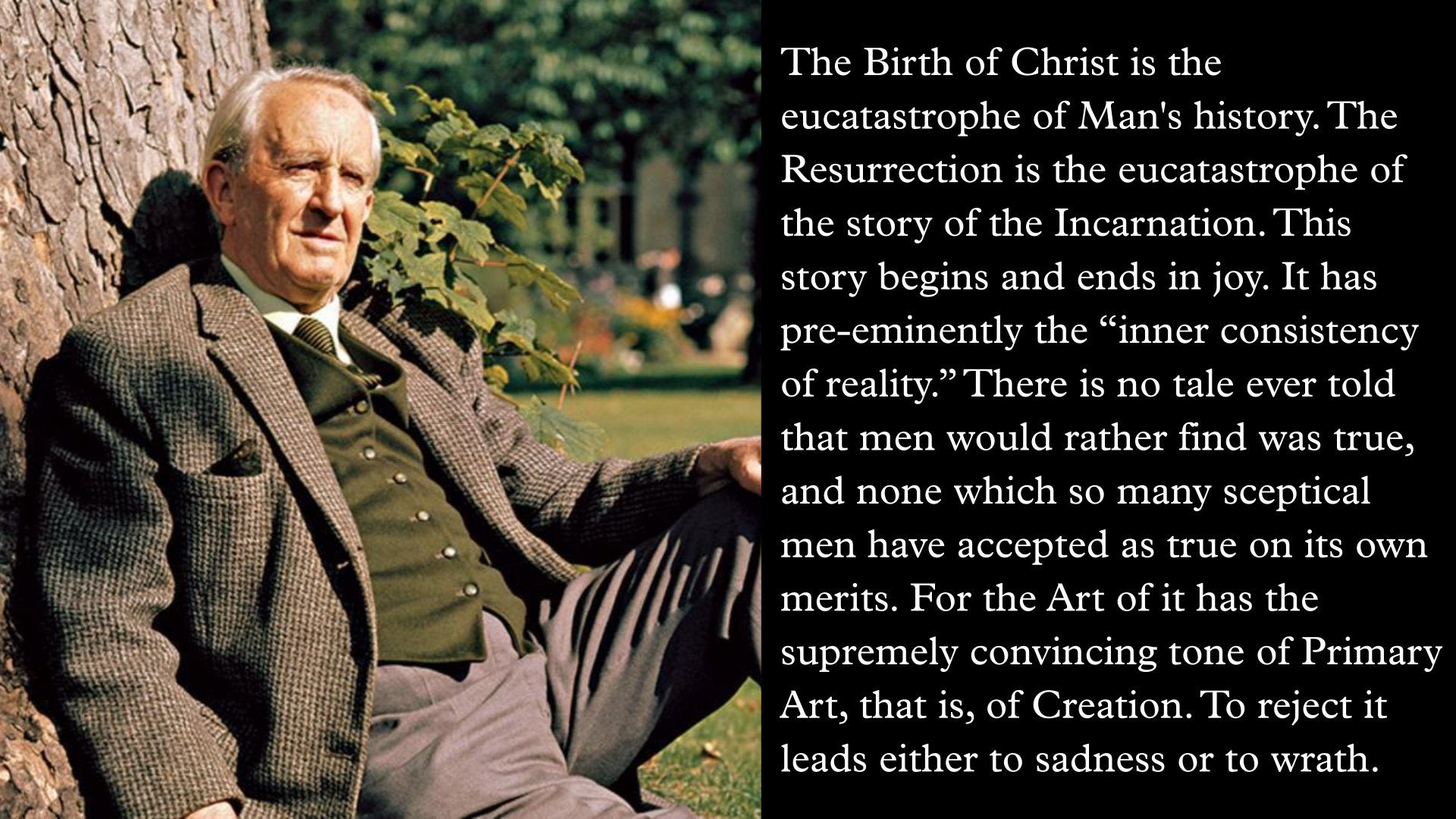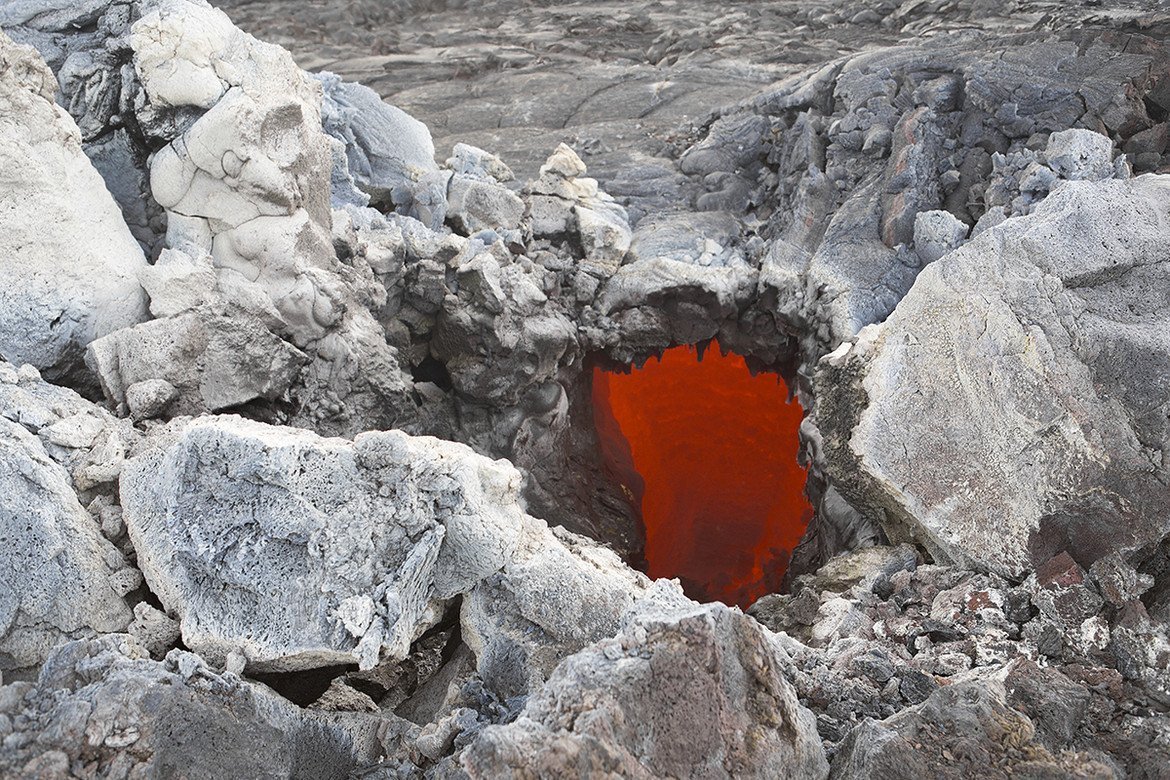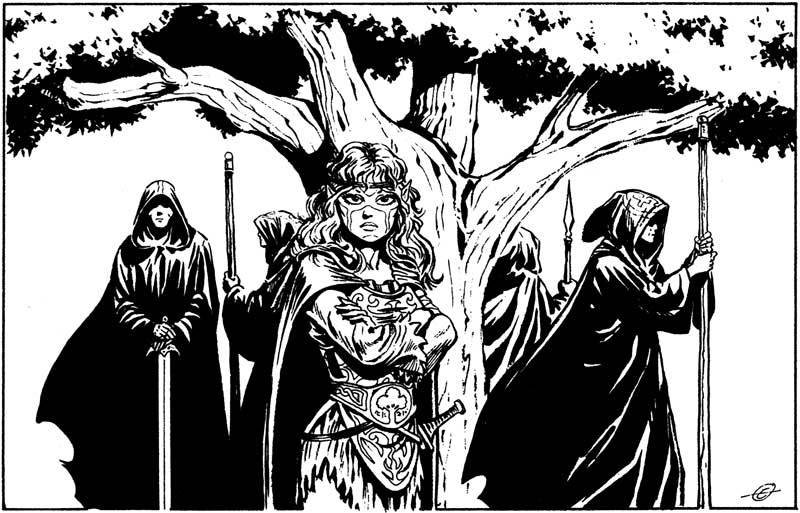Forgotten Ruin and Eucatastrophe

I like writing book reviews, although in one way I do find the form a bit limiting. For the most part, book reviews are written to entice people to read a book they have not read, and hence it is considered bad form to give away everything in the book in a review, to spoil it for the reader. I play pretty fast and loose with this norm, but I do not disregard it entirely.
However, I think that most of the really interesting things in a good book require discussing all of the things that would be considered spoilers in current usage, so I whenever I write a review there is a constant struggle as I ask myself: should I write about that?
Whenever it just boils over and I cannot contain myself, my approach at present is to write another blog post, separate from the book review, in which I talk about whatever I want to talk about. For example, the blog post Why I can never be Tyrus Rechs was the result of feeling like I could not discuss all of the coolest stuff that came to mind when I read Imperator, the story of the temptation and fall of Casper Sullivan in the Galaxy’s Edge universe by Jason Anspach and Nick Cole.
For books that aren’t new, I just let it all hang out, like I did with The Drawing of the Dark by Tim Powers, or Bram Stoker’s Dracula. But for newer books, I do feel like I should restrain myself. A little.
Thus, I want to talk about eucatastrophe in the Forgotten Ruin series. Forgotten Ruin is another creation of Anspach and Cole, but this one borrows heavily from both Dungeons and Dragons and J. R. R. Tolkien’s The Lord of the Rings. At the beginning, D&D had a lot of of LotR in it too, but a cease and desist letter put an end to that. However, it is pretty clear that the two things “nick”, the term used to describe when you combine two different lineages and get something that is greater than the sum of its parts.
I’ll quote at length from what Tolkien himself said about his neologism:

In his On Fairy-Stories Tolkien described the concept:
"But the 'consolation' of fairy-tales has another aspect than the imaginative satisfaction of ancient desires. Far more important is the Consolation of the Happy Ending. Almost I would venture to assert that all complete fairy-stories must have it. At least I would say that Tragedy is the true form of Drama, its highest function; but the opposite is true of Fairy-story. Since we do not appear to possess a word that expresses this opposite — I will call it Eucatastrophe. The eucatastrophic tale is the true form of fairy-tale, and its highest function.
The consolation of fairy-stories, the joy of the happy ending: or more correctly of the good catastrophe, the sudden joyous “turn” (for there is no true end to any fairy-tale): this joy, which is one of the things which fairy-stories can produce supremely well, is not essentially 'escapist', nor 'fugitive'. In its fairy-tale—or otherworld—setting, it is a sudden and miraculous grace: never to be counted on to recur. It does not deny the existence of dyscatastrophe, of sorrow and failure: the possibility of these is necessary to the joy of deliverance; it denies (in the face of much evidence, if you will) universal final defeat and in so far is evangelium, giving a fleeting glimpse of Joy, Joy beyond the walls of the world, poignant as grief.
It is the mark of a good fairy-story, of the higher or more complete kind, that however wild its events, however fantastic or terrible the adventures, it can give to child or man that hears it, when the “turn” comes, a catch of the breath, a beat and lifting of the heart, near to (or indeed accompanied by) tears, as keen as that given by any form of literary art, and having a peculiar quality."
Tolkien would further elaborate on eucatastrophes in one of his letters:
"I coined the word 'eucatastrophe': the sudden happy turn in a story which pierces you with a joy that brings tears (which I argued it is the highest function of fairy-stories to produce). And I was there led to the view that it produces its peculiar effect because it is a sudden glimpse of Truth, your whole nature chained in material cause and effect, the chain of death, feels a sudden relief as if a major limb out of joint had suddenly snapped back. It perceives – if the story has literary 'truth' on the second plane (....) – that this is indeed how things really do work in the Great World for which our nature is made. And I concluded by saying that the Resurrection was the greatest 'eucatastrophe' possible in the greatest Fairy Story – and produces that essential emotion: Christian joy which produces tears because it is qualitatively so like sorrow, because it comes from those places where Joy and Sorrow are at one, reconciled, as selfishness and altruism are lost in Love."
When Tolkien refers to fairy-stories, he means what we now call both fantasy and science fiction [and horror too], but he himself also used the term “romance”, which is likely to be intensely confusing to a contemporary audience. A “romance” is a series of marvelous adventures, and it is one of the oldest forms of literature, with many of the most ancient stories we still have records of being of this form.
Northrop Frye laid out the different kinds of stories that we tell in his Anatomy of Criticism:
The four mythoi that we are dealing with, comedy, romance, tragedy, and irony, may now be seen as four aspects of a central unifying myth. Agon or conflict is the basis or archetypical theme of romance, the radical of romance being a sequence of marvelous adventures. Pathos or catastrophe, whether in triumph or in defeat, is the archetypal theme of tragedy. Sparagmos, or the sense that heroism and effective action are absent, disorganized or foredoomed to defeat, and that confusion and anarchy reign over the world, is the archetypal theme of irony and satire. Anagnorisis, or recognition of a newborn society rising in triumph around a still somewhat mysterious hero and his bride, is the archetypal theme of comedy.
Tolkien wanted to emphasize something that was a contrary to tragedy, but a different contrary than what is already contained in comedy [also confusing, as this sense of comedy has nothing to do with our current sense of the word].

The entrance to the mythic underworld
The Hero’s journey, and the mythic underworld that I talked about in my review of The Book of Joe are the precursors to Frye’s sense of comedy, the new society arising from the triumph of the hero. Comedy is about what happens after you defeat the monster and win the girl. Our society finds it really hard to appreciate or express this right now. One of the few examples I can think of right now is Fenton Wood’s Yankee Republic [free on Amazon right now!].
For our purposes, the eucatastophe of a romance or an adventure story is the opposite of the catastrophe of tragedy. Casper’s story in Imperator is a classic tragedy. Tyrus’ story is a tragedy too, but his failure was not a moral failure. They both failed to achieve the things they set out to achieve, despite their many successes and virtues. A fairy-story, or an adventure story, perfects its form when the hero or heroes get their happy ending despite all odds, often through divine providence.
Providence is not a common term anymore, but it is one of my favorite themes in stories. It is the idea that God’s omnipotence cannot be derailed by anything so mundane as the foolishness of men. Things will go better if you cooperate, but your cooperation isn’t necessary. Pain and suffering are usually the result of rejecting God’s guidance, but providence is manifested when grace breaks through despite your failings.

Not exactly Last of Autumn, but close
This is precisely where Forgotten Ruin does so well. Providence often comes through the character Autumn. Last of Autumn. In book one, Last of Autumn arrives at the last minute to rescue the Rangers from certain doom at Ranger Alamo. In book five, it is the prayers of Autumn that save the lost Rangers and the lost Legionnaires from certain doom in the endless desert.
Talker did not get the happy ever after he hoped for with Autumn. Last of Autumn. But what he did get was perhaps something greater. In Tolkien’s usage, there is a bit of a play on words in that eucatastrophe includes catastrophe. As the fragments of the Book of Skelos make clear, the events that Ruined the world were blowback from Deep State malfeasance. But, the same events that Ruined the world cast the world’s saviors forward into the time where they could do the most good.
Talker didn’t get to sail off into the sunset with Autumn. Instead, he got toil and pain and strife, because that was where he needed to be. The Ruin, Talker’s loss of his dream with Autumn, these are genuine catastrophes, but they are also not the end of the story. Each time, it is not the final defeat, but rather the prelude to something greater. What we get is “the ‘turn’…, a catch of the breath, a beat and lifting of the heart, near to (or indeed accompanied by) tears”.
Joy and suffering united as one are the hallmark of eucatastrophe, and that is exactly what Talker has gotten, and it going to get some more of before this is all done.
Forgotten Ruin
Forgotten Ruin Book Review
Hit & Fade: Forgotten Ruin Book 2 Book Review
Violence of Action: Forgotten Ruin Book 3 Book Review
Lay the Hate: Forgotten Ruin Book 4 Review
Book of Joe: Forgotten Ruin Book 5 Review



Comments ()